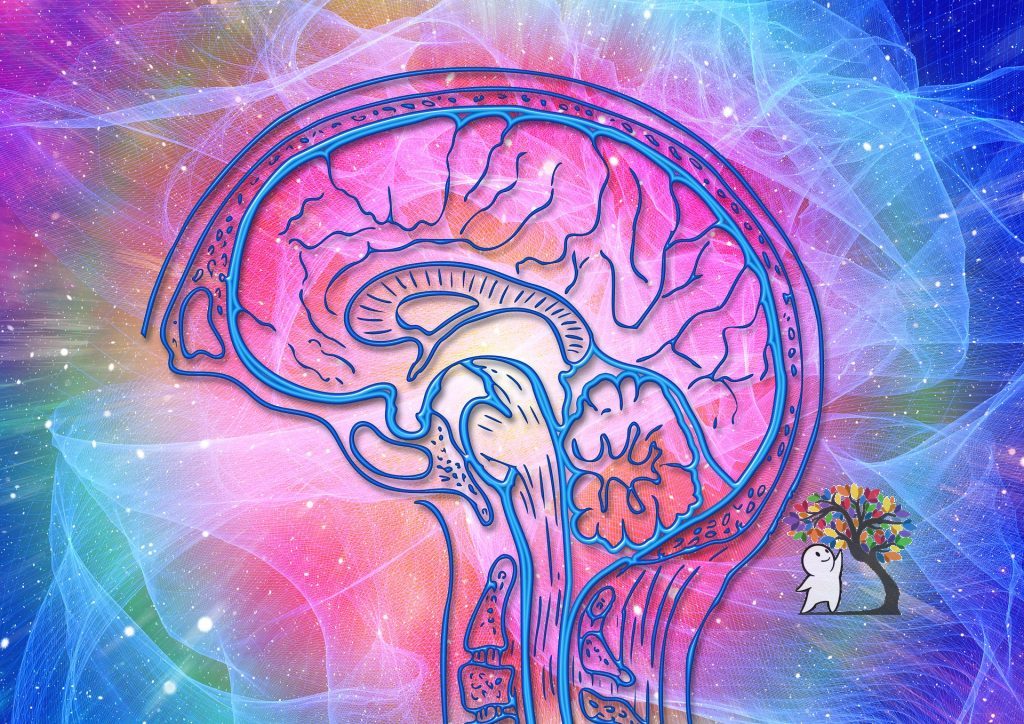10 Strengths of a Highly Sensitive Person

Life as a Highly Sensitive Person can be hard. HSPs have a condition called sensory processing sensitivity, which makes them more reactive to physical, social, and emotional stimuli. Put simply, HSPs feel to a great, and often uncomfortable, degree. As a result, school can be torture, work can be overwhelming, and simple decision-making can be an anxiety-riddled ordeal. Perhaps worst of all, these sensitivities can cause discord among friends and family, generating feelings of guilt or shame in the HSP. If you’re a highly sensitive person, we at Psych2Go implore you to be proud of who you are! You have amazing abilities and can provide deep, meaningful insights into life. Allow us to share with all of you, HSP and otherwise, 10 Strengths of a Highly Sensitive Person.
Greater Autonomy

A Highly Sensitive Person is usually an introvert. As you may remember from our video on the subject, roughly 70 percent of HSPs are introverted. This stat comes from Elaine Aron, the psychologist who first described sensory processing sensitivity in the mid-90s. Among the many great qualities of introversion is autonomy. Autonomous people are self-sufficient, self-directed, and self-motivated. Because socializing can quickly drain their emotional reservoirs, many HSPs cherish their alone time and accomplish wonderful things in that span.
Heightened Senses

We don’t mean “heightened senses” like what Spider-Man and Daredevil have, but the ability for HSPs to sense emotional changes in other people. A study published in the July 2014 issue of Brain and Behavior found that HSPs had stronger activation of brain regions responsible for awareness, attention, and action-planning. This occurred in response to stimuli such as facial expressions. While highly sensitive people might actually taste, touch, hear, smell, and see better than others, these symptoms are more often associated with hypersensitivity disorders rather than sensory processing sensitivity.
Greater Development Potential

According to Kazimierz Dabrowski, a 20th century Polish psychologist who studied the development of gifted youth, there are five levels of self-actualization (becoming your true self). Everyone can reach the fifth level, but HSPs may have an advantage due to their reflective nature. Certain psychologists believe that highly sensitive people have an innate potential for self-actualization. For those of you curious, Level 5 can be achieved with depth of consciousness, a connection to something bigger than one’s self, and the fulfillment of inner peace.
Deeper Empathy

HSPs are subject to emotional extremes during times of stress. This can be exhausting for all involved. But, as compensation, their compassion, care, and responsibility towards others is unparalleled. In study after study HSPs register higher empathy scores than the control groups. It is therefore quite common for HSPs to take up humanitarian and environmental causes. The child who cried finding a dead bird on the ground may very well open an aviary in the future.
More Creativity

Creativity is often attributed to highly sensitive people. For this reason, Albert Einstein, Walt Disney, Vincent Van Gogh, and other creative geniuses have been claimed by the HSP community. While we can’t prove that these people were highly sensitive, their characteristics match those of the condition. After all, creativity is not just about art. Creativity is the ability to conjure and combine ideas in uncommon ways. This requires sensitivity, both to one’s thoughts and surroundings. With that said, learn anything about Van Gogh and try to tell us that he wasn’t an HSP.
Passion for Learning

Although HSPs and introverts are stereotyped as bookworms, their intellectual interests go beyond Harry Potter and The Hunger Games. Curiosity is both their best friend and worst enemy. For instance, if a question pops into the head of an HSP, they will not rest until a satisfactory answer is known. Also, what HSPs find intellectually stimulating may not be taught in schools – or be considered proper learning. These are both positives in our opinion. Curiosity can carry an HSP far, so long as it’s not too far. A link has been suggested between sensory processing sensitivity and OCD. Knowing how deep an HSP can dive into a subject, this isn’t hard to believe.
Greater Sense of Justice and Fairness

Fairness comes easy to a Highly Sensitive Person. At least this how many psychologists see it. Being high in conscientiousness means that HSPs are concerned with righting wrongs. When things are not fair, it can eat at an HSP’s soul. Many a schoolyard dilemma has been solved by the suggestions of an HSP. When such a person grows up, they may decide to fight for justice on a large scale. This makes us wonder how many activists and freedom fighters have been highly sensitive.
Maturity at an Early Age

Since HSPs have greater development potential, they can reach maturity at a young age. By maturity, we mean the ability to handle hardships without resorting to pettiness. It is a strength to make rational decisions about one’s life. However, this strength can only come out with proper emotional and intellectual development. Some HSPs do not have the right environment to reach their full potential. Maturity at an early age is also easily manipulated by less-mature adults.
An Eye for Detail

Do you hear a buzzing in the room? Did you notice that the clock stopped working? For an HSP, the little details in life are all a part of the package. HSPs feel like they’re the only ones who notice these details, and in many cases they’re right. Although this sensitivity can be overwhelming, HSPs can get more out of things that other people take for granted, like movies by noticing how a director uses a certain color or music by noticing a subtle chord change. Little details can form a beautiful picture of the world.
Oneness with Nature

Many HSPs have a deep connection with nature. This is because nature acts as a cleanser for the emotional chaos of human society. Nature doesn’t judge you: plants don’t care who you are and animals live by an easily understood code. Going for a hike in the woods, a stroll on the beach, or even maintaining a garden at home is proven to relieve stress. Nature respects the highly sensitive person, so the highly sensitive person respects nature. Planet Earth becomes a little more cooperative as a result.
Being a highly sensitive person comes with many challenges, but also the strengths to succeed in a world that can feel unbearable. The key for an HSP is to focus on how your unique abilities can make life better for yourself and others. Not everyone can understand a Highly Sensitive Person, so it’s up to you to be your best ally.
Note: Article adapted from 10 Strengths of a Highly Sensitive Person by Kimberly Stewart
Sources:
Acevedo, B.P. (2014). The highly sensitive brain: an fMRI study of sensory processing sensitivity and response to others’ emotions. Brain and Behavior, 4(4), 580-594. doi: 10.1002/brb3.242
Aspinall, P. (2015). The urban brain: analysing outdoor physical activity with mobile EEG. British Journal of Sports Medicine, 49(4), 272-276. doi: 10.1136/bjsports-2012-091877
Daniels, S., & Piechowski, M. M. (2009). Living with Intensity: Understanding the sensitivity, excitability, and emotional development of gifted children, adolescents, and adults. Scottsdale, AZ: Great Potential Press.
Dixon, E. et al. (2016). Development of the Sensory Hypersensitivity Scale (SHS): a self-report tool for assessing sensitivity to sensory stimuli. Journal of Behavioral Medicine, 39(3), 537-550. doi: 10.1007/s10865-016-9720-3




Responses